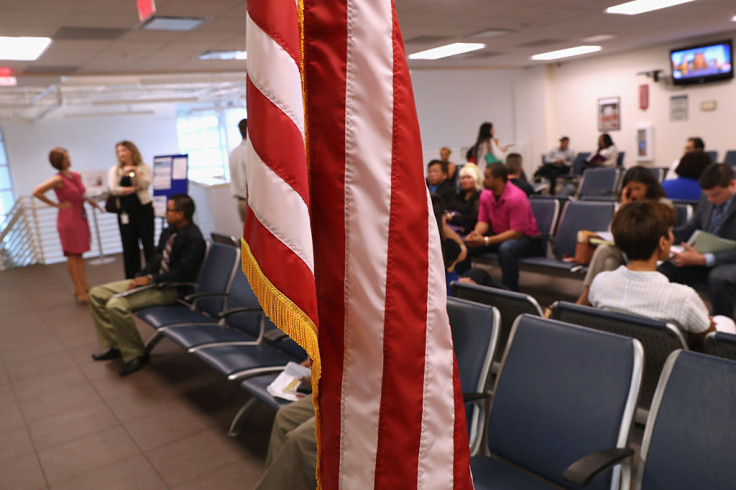
Immigrants applying for green cards through marriage or other family ties could now face deportation under a new Trump administration policy change, according to updated guidance from U.S. Citizenship and Immigration Services (USCIS).
The policy, effective immediately as of August 1, applies to both new and pending applications and marks a significant shift in how family-based residency petitions are handled.
According to the updated USCIS policy manual, immigrants and the family members who sponsor "should be aware that a family-based petition accords no immigration status nor does it bar removal." This means that applicants without lawful status—including those who overstayed visas or lost protection under other programs—may be placed into removal proceedings even while their green card applications are in process.
"This is one of the most important avenues that people have to adjust to lawful permanent status in the United States," said Elora Mukherjee, director of the Immigrants' Rights Clinic at Columbia Law School to NBC News. She added that under the new policy, deportation proceedings could begin "at any point in the process," including before an application is adjudicated.
Mukherjee warned the shift could "instill fear in immigrant families, even those who are doing everything right."
The policy impacts not only undocumented immigrants but also those whose legal immigration statuses have lapsed, including individuals affected by the administration's rollback of protections under programs like Temporary Protected Status (TPS) and Deferred Action for Childhood Arrivals (DACA).
More than 520,000 I-130 family-based green card petitions were filed in the first half of 2025. As of June, over 2.4 million such petitions were pending, with nearly 2 million of those waiting more than six months. While exact figures are unclear, many applicants are presumed to lack valid status at some point during their process.
USCIS stated the change is part of its mission to "ensure integrity in the U.S. immigration system" and to detect and prevent fraud. "Fraudulent, frivolous, or otherwise non-meritorious family-based immigrant visa petitions erode confidence," the agency said.
© 2025 Latin Times. All rights reserved. Do not reproduce without permission.





